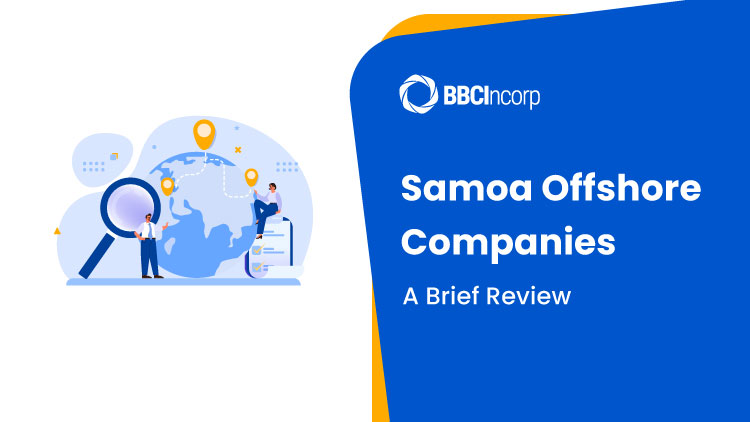Offshore Company Formation Specialists: Construct Your Service Past Borders
Offshore Company Formation Specialists: Construct Your Service Past Borders
Blog Article
Master the Art of Offshore Business Formation With Specialist Tips and Methods
In the realm of global company, the facility of an offshore business requires a calculated method that exceeds simple documentation and filings. To navigate the intricacies of overseas firm development effectively, one should be well-versed in the nuanced tips and methods that can make or damage the process. By comprehending the advantages, details of jurisdiction selection, structuring methods, compliance demands, and recurring monitoring basics, one can unlock the full potential of offshore entities. These skilled understandings supply a glimpse into a world where savvy decisions and careful preparation pave the way for success in the worldwide organization landscape.
Advantages of Offshore Business Development

Establishing an offshore company supplies an array of advantages for companies seeking to optimize their financial procedures and worldwide visibility. Offshore territories commonly supply positive tax structures, allowing companies to reduce their tax problems lawfully.
Furthermore, offshore business provide improved privacy and confidentiality. In several territories, the details of company ownership and financial details are kept personal, offering a layer of protection versus competitors and possible dangers. This privacy can be especially beneficial for high-net-worth people and services running in sensitive sectors.
Moreover, offshore business can help with international service expansion. By developing a visibility in several jurisdictions, firms can access new markets, expand their profits streams, and mitigate threats connected with operating in a single location. This can cause raised durability and growth possibilities for business.

Selecting the Right Jurisdiction
In light of the various benefits that offshore firm development can use, a critical calculated consideration for organizations is selecting one of the most ideal jurisdiction for their operations. Picking the right territory is a choice that can significantly affect the success and performance of an offshore business. When picking a jurisdiction, aspects such as tax obligation regulations, political stability, lawful structures, personal privacy laws, and online reputation should be thoroughly reviewed.
Tax regulations play a crucial role in figuring out the financial benefits of running in a certain jurisdiction. Some overseas areas use desirable tax systems that can aid businesses reduce their tax responsibilities. Political security is essential to ensure a protected company setting without possible disturbances. Lawful frameworks vary across jurisdictions and can affect just how organizations run and settle disagreements. offshore company formation.
Selecting a territory with a strong credibility can enhance reputation and trust fund in your offshore firm. Cautious consideration of these variables is essential to make an home educated choice when picking the best jurisdiction for your overseas company formation.

Structuring Your Offshore Company
The means you structure your offshore firm can have considerable ramifications for taxation, obligation, compliance, and general functional performance. One more technique is to create a subsidiary or branch of your existing business in the overseas jurisdiction, allowing for closer combination of procedures while still profiting from offshore advantages. offshore company formation.
Consideration needs to additionally be given to the ownership and administration framework of your overseas firm. Choices concerning investors, supervisors, and police officers can influence administration, decision-making procedures, and regulatory obligations. It is a good idea to look for specialist advice from legal and economists with experience in offshore business development to make sure that your chosen structure aligns with your company goals and abide by appropriate legislations and guidelines.
Conformity and Policy Essentials

Additionally, remaining abreast of changing laws is crucial. Consistently examining and updating business documents, economic records, and functional practices to straighten with developing conformity standards is needed. Engaging with lawful advisors or compliance specialists can offer beneficial assistance in browsing complex governing frameworks. By prioritizing conformity and guideline essentials, overseas firms can operate morally, reduce threats, and develop trust fund with stakeholders and authorities.
Maintenance and Ongoing Administration
Efficient monitoring of an offshore company's ongoing maintenance is vital for ensuring its long-lasting success and compliance with regulatory demands. Routine upkeep jobs include updating corporate records, restoring licenses, filing yearly records, and holding investor conferences. These tasks are essential for preserving great standing with authorities and protecting the lawful condition of see this here the offshore entity.
Furthermore, continuous administration includes managing economic purchases, keeping an eye on conformity with tax obligation guidelines, and sticking to reporting demands. It is necessary to assign professional specialists, such as accounting professionals and lawful consultants, to help with these obligations and guarantee that the business operates smoothly within the boundaries of the regulation.
In addition, remaining notified regarding changes in legislation, tax laws, and conformity criteria is extremely important for efficient continuous administration. Frequently examining and updating corporate governance techniques can assist reduce risks and make certain that the overseas business stays in great standing.
Conclusion
Finally, grasping the art of overseas business formation requires mindful factor to consider of the advantages, territory selection, firm structuring, compliance, and ongoing management. By understanding these vital facets and carrying out skilled suggestions and strategies, people can efficiently develop and maintain overseas companies to optimize their company opportunities and economic advantages. It is crucial to focus on conformity with guidelines and carefully manage the firm to make sure long-lasting success in the overseas organization atmosphere.
Report this page